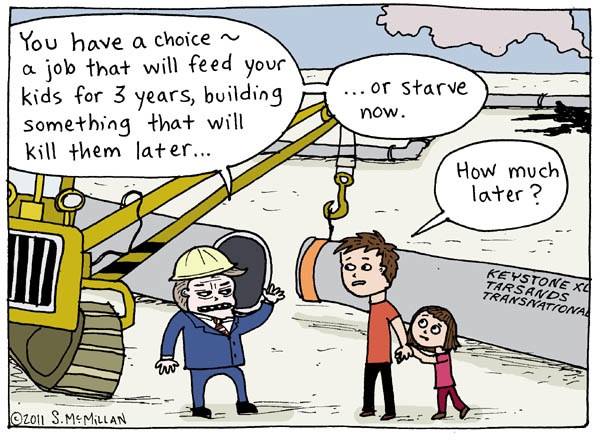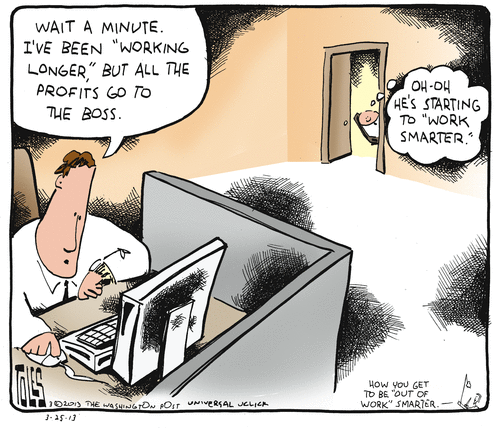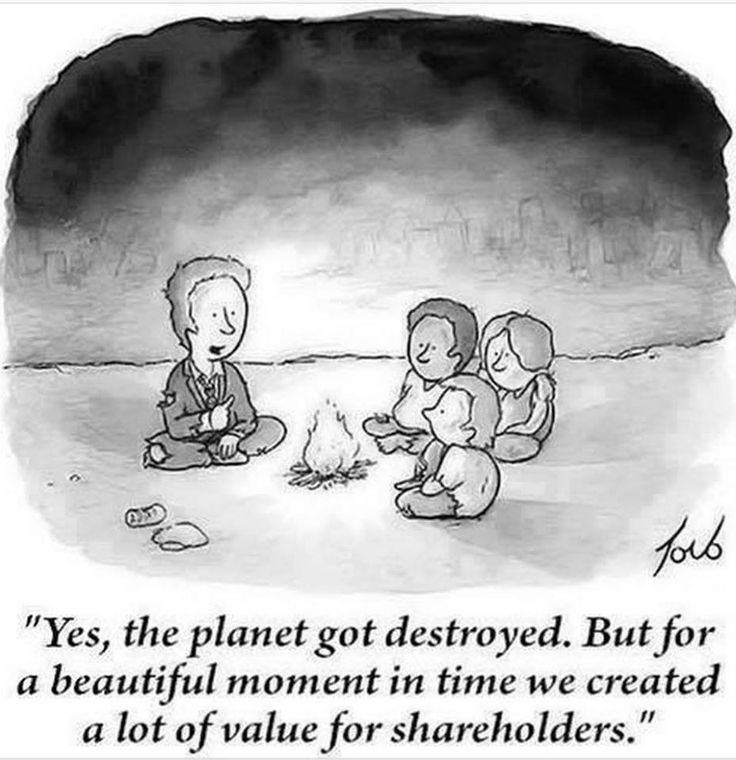“The term wage slavery has been used to criticize exploitation of labour and social stratification, with the former seen primarily as unequal bargaining power between labor and capital (particularly when workers are paid comparatively low wages, e.g. in sweatshops), and the latter as a lack of workers’ self-management, fulfilling job choices, and leisure in an economy. The criticism of social stratification covers a wider range of employment choices bound by the pressures of a hierarchical society to perform otherwise unfulfilling work that deprives humans of their ‘species character’ not only under threat of starvation or poverty, but also of social stigma and status diminution… Similarities between wage labor and slavery were noted as early as Cicero in Ancient Rome” ~ Wikipedia
“People who dismiss the unemployed and dependent as ‘parasites’ fail to understand economics and parasitism. A successful parasite is one that is not recognized by its host, one that can make its host work for it without appearing as a burden. Such is the ruling class in a capitalist society.” ~ Jason Read
“Capitalism is a form of class society which has come to dominate the entire world in one global system, where the whole of social production is done for the benefit of only a few… what makes capitalism different from previous forms is the way that wealth is accumulated, which is through the exploitation of labour and the process of the production of commodities: Workers are not payed the full value of their labour; they produce more value than they receive as wages, and that extra labour power, which is stolen by the capitalist and is called ‘surplus value’, is embodied in the commodities, and realized as profit when those are sold and reinvested as new capital…
[For example] You’re working for $10 an hour and you’re making boxes of frozen waffles. You’re working at a factory. The amount that you’re payed is a wage that corresponds to the working day. So you’re paid… $80 a day, and you produce $80 worth of waffles in an hour, let’s say. So the whole rest of the day, you’re producing waffles for free. The value of those waffles belongs to the capitalist, it doesn’t belong to you who made them… You’ve produced that much surplus value for the capitalist…
…the factory, itself, was made through the same process, and so it’s congealed stolen labour from workers as well… Capitalists do have the most weapons usually, and they take that stuff at the beginning [historically]. So that’s why they claim to own it– they conquer it. The… first part of capitalism is called primary accumulation, and that’s basically going out somewhere and stealing money and resources and enslaving people… So basically, it begins as conquering and then once it’s owned, they claim to have a right to it. Capitalism involves the domination of this class over the working class and it also involves the resistance of workers to that domination… The whole society, the way that it exists has been shaped by the economic system that we live under… and in the interests of that class that dominates that system.” ~ Stephanie McMillan

Go back 150 years… beginnings of the industrial revolution… At that time, the mills were being formed around Boston. They were bringing in working people, what were called factory-girls– [and] Irish workmen from Downtown Boston… had a very free and lively press at the time, which they, themselves, ran… And the press is quite interesting. It was written by the participants- their assumptions are what are relevant here- they just took for granted that wage labor was virtually the same as slavery. They had no influence from European radicalism– never heard of Marx, nothing of this– it’s just the ordinary assumptions of people who think reasonably about the world. Wage labour is illegitimate, it’s like slavery. This is right around the time of the civil war. Northern workers in the American Civil War fought under that banner; that wage slavery is like chattel slavery. In fact it was even the position of the Republican Party. It was a fairly mainstream position. You’ve even got editorials in the NY Times about it, believe it or not. And they also took for granted that the industrial system is totally illegitimate. It’s just a form of feudalism to which people are driven by essentially violence or starvation, and has to be overcome. Those who work in the mills should own them is taken for granted. The feudalistic industrial system was destroying their culture… These are understandings about the nature of freedom and domination that have been lost. So it’s not pure progress. How far they’ve been lost is an interesting question. My suspicion is that they’re right below the surface. And when the issues arise– right now– working people in the counterpart of the mills will recognize the relevance and accuracy of these, basically anarchist, positions…” ~ Noam Chomsky
“Did you know that before the Industrial Revolution, the average person worked for about two or three hours a day? Studies from a wide range of pre-industrial civilisations show similar data– it takes only about fifteen hours a week to provide for all of our basic human needs. And that’s using hand tools.” ~ Walden Effect/Anna Hess
“Using the data provided by the United State Bureau of Labor Statistics, Erik Rauch has estimated productivity to have increased by nearly 400%. Says, Rauch:
‘… if productivity means anything at all, a worker should be able to earn the same standard of living as a 1950 worker in only 11 hours per week.’
…Since the 1960s, the consensus among researchers (anthropologists, historians, sociologists), has been that early hunter-gatherer societies enjoyed much more leisure time than is permitted by capitalist and agricultural societies…” ~ Wikipedia

“The important thing to understand about collapse is that it’s brought on by overreach and overstretch, and people being zealots and trying too hard. It’s not brought on by people being laid back and doing the absolute minimum. Americans could very easily feed themselves and clothe themselves and have a place to live, working maybe 100 days a year. You know, it’s a rich country in terms of resources. There’s really no reason to work more than maybe a third of your time. And that’s sort of a standard pattern in the world. But if you want to build a huge empire and have endless economic growth, and have the largest number of billionaires on the planet, then you have to work over 40 hours a week all the time, and if you don’t, then you’re in danger of going bankrupt. So that’s the predicament that people have ended up in. Now, the cure of course is not to do the same thing even harder… what people have to get used to is the idea that most things aren’t worth doing anyway…” ~ Dmitry Orlov
“We live in an economy which takes 80% of our each new generation and educates that 80% to obey orders and to endure boredom, and stifles their creativity, and stifles their capacities, and curtails them. They’re systematically crushed by a system which does what? Which fills slots, and 80% of the slots need people who just do rote tedious repetitive labour at least at work, and therefore are acclimated to doing that…
If you’re callous to the effects on others, you have a potential to rise. The odds are that you can ‘compete’ your way up. If you care and are socially concerned about others, you’re at a tremendous disadvantage. So I think the competitive dynamic that we have does sort of weed out a set of people for success. But I would say that what it weeds out for success is not competence, not creativity, not intelligence, but callousness far more often.” ~ Michael Albert, co-founder ‘Z Magazine’

